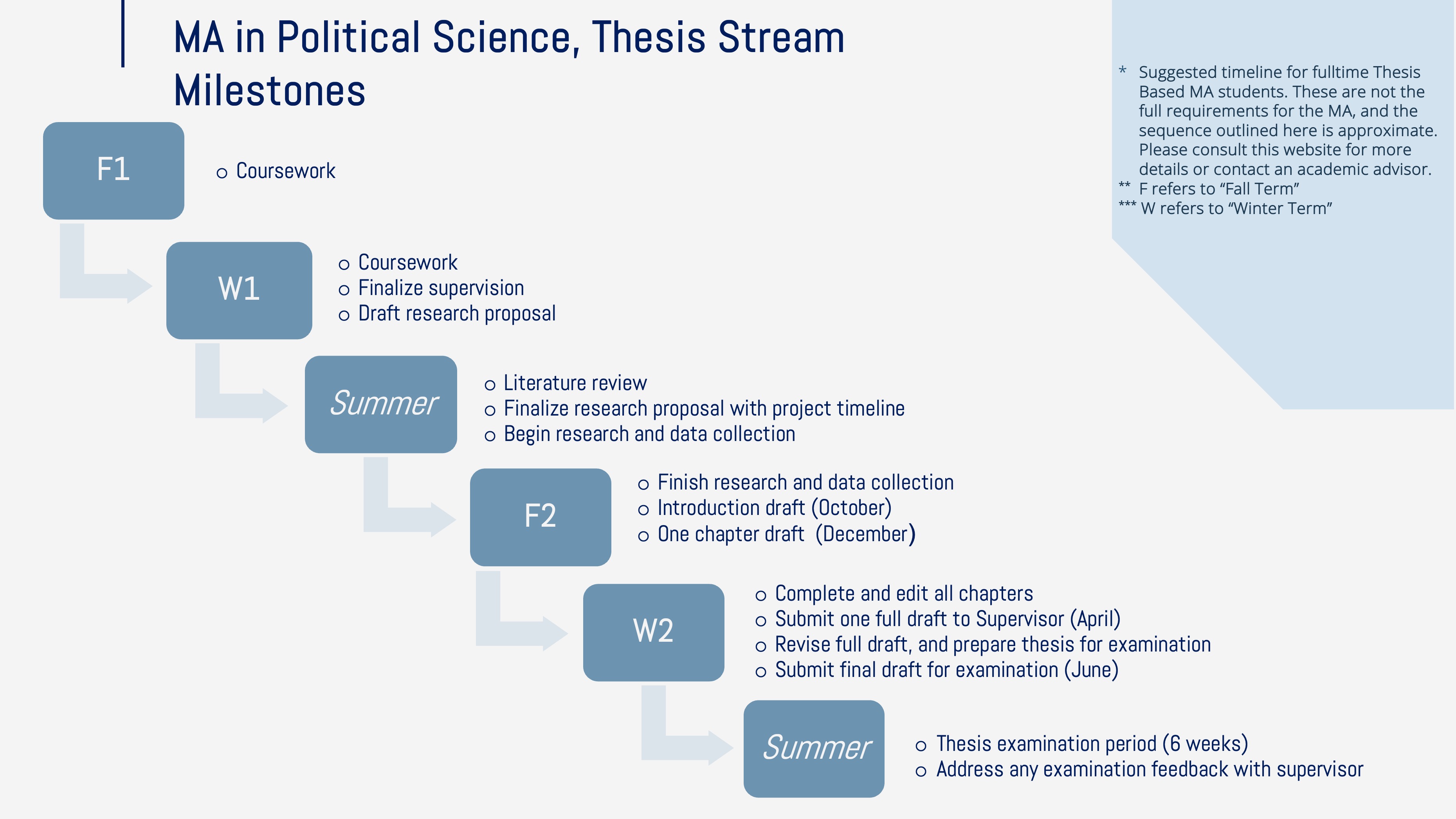MA with Thesis
The MA with Thesis option is ideal for students with a track record of academic excellence, looking to conduct independent research and analysis under the mentorship of our expert faculty.
Graduate students admitted to the thesis stream typically complete their program within 24 months. The thesis stream combines graduate-level coursework with rigorous training in qualitative and quantitative research techniques, to prepare students to pursue their own research projects.
Students applying for the thesis option must submit a brief statement of their research interests with their application or when they request a change in program to the thesis stream.
Because of its academic focus, the thesis stream is the best option for students who have plans to pursue a PhD in Political Science in the future, or who have compelling research interests on a particular topic. Thesis stream students typically work with a supervisor to identify an appropriate research question during the coursework phase of their program.
It is not necessary to secure a potential supervisor prior to application. Often, supervisor selection occurs later in the program as students get to know department faculty, and their thesis topic takes shape.
Formal Program Requirements

Want to make sure you’re on track in your program?
Students choosing the MA with thesis must complete a minimum of 18 credit hours in political science graduate program courses of which 3 credit hours must be attained from either POSC 6000 (Concepts) or POSC 6010 (Methods) and 3 credit hours must be obtained from POSC602A/B. Further courses beyond the minimum number may be required, depending on the background and needs of the student.
Each student choosing the thesis option will submit a thesis on a subject that has been approved by their designated supervisor in the Department of Political Science. The timeline from completing coursework to the research and submission of the final written thesis is approximately 24 months, roughly following the sequence in the diagram above.
Thesis Requirements
A Master's thesis must show that a student can:
- Identify a significant research question
- Design and carry out a program of research;
- Present the results of that research in a clear, coherent, and professionally acceptable manner.
Though the thesis must be significant research, it is not expected to be path-breaking.
The Department of Political Science prefers concise theses of 20,000 words (roughly 70 pages of text). The thesis author will be expected to follow the Department's Plagiarism and Documentation policies.
Procedures
Graduate students who successfully receive admission to the thesis stream students are expected to contact a faculty member with similar research interests to explore the possibility of that person agreeing to be the student's supervisor. This may occur as early as when the student is applying to the university and must be completed before the end of the first semester at Memorial.
The student and their supervisor wil work together on the student's chosen thesis project. The supervisor must read and approve the student's thesis proposal. The supervisor will read and approve the final draft of the student's thesis before it is sent for examination.
The actual examination is done by two inside examiners (a member of this Department who has not been involved with the preparation of the thesis). The School of Graduate Studies sets the calendar guidelines governing thesis examinations and program completions. Final Theses are submitted to the library and must therefore meet University formatting requirements.
Graduate students may choose to avail of the Faculty of Arts Digital Research Centre's services, which can support their qualitative research by providing access to high quality digital tape recorders, cameras, video equipment and software to gather, preserve, process and analyze field data.
For further information, please contact our Graduate Coordinator.
.jpeg)